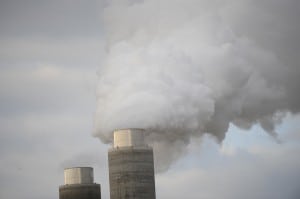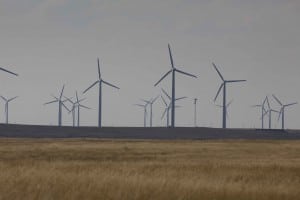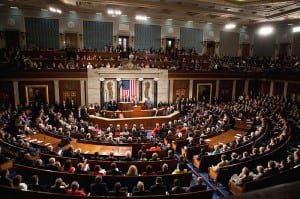Clean Power Plan
-
Commentary
Power Industry Wins with Final Clean Power Plan
Though most power generators and states might have preferred to not deal at all with a new rule regulating greenhouse gas emissions, the final Clean Power Plan (CPP), released August 3, gives most of the power
-
Commentary
The Clean Power Plan Is Final: Time to Find the Candles?
On August 3, 2015, the Environmental Protection Agency (EPA) released a much-anticipated suite of regulations, featuring the final Clean Power Plan’s guidelines for carbon dioxide (CO2) emissions from existing power plants under Clean Air Act section 111(d). This package has sparked great interest, and early reactions run the gamut from enthusiastic support to entrenched opposition. […]
-
Legal & Regulatory
Reactions to Clean Power Plan: From Excitement to Anger
Reaction from utilities, environmental groups, and governmental leaders following the August 3 release of the Environmental Protection Agency’s (EPA’s) final Clean Power Plan rule was mixed. Some, such as Duke Energy CEO Lynn Good, pointed to the progress that has already been made in recent years to reduce carbon dioxide (CO2) emissions, noting that the […]
-
Legal & Regulatory
[UPDATED] EPA Issues More Ambitious But Flexible Final Clean Power Plan
Editor’s note (Aug. 3): Adds compliance cost details, key changes The Environmental Protection Agency’s (EPA’s) final Clean Power Plan will seek to tamp down the nation’s carbon dioxide (CO2) emissions from the power sector by 32% from 2005 levels by 2030—about 9% more ambitious than its original proposal. The first-ever final national standards to limit […]
-
Legal & Regulatory
Power Sector Braces for Final Clean Power Plan Rule
With the Environmental Protection Agency (EPA) expected to issue its final rule on power plant greenhouse gas emissions under the administration’s Clean Power Plan (CPP) early next week, reports strongly suggest the revisions will extend compliance deadlines in response to power sector complaints about a too-aggressive schedule in the proposed rule. A July 28 report […]
Tagged in: -
Renewables
Report: Power Plant Air Emissions Continue Steady Decline
In a report released this week, M.J. Bradley & Associates found that in 2013 power plant SO2 emissions were 80% lower and NOx emissions were down 74% compared to releases in 1990—the year Congress passed major amendments to the Clean Air Act. The report, Benchmarking Air Emissions of the 100 Largest Electric Power Producers in […]
-
Legal & Regulatory
McCarthy: Supreme Court Decision on MATS Won’t Affect the Clean Power Plan Rule
Environmental Protection Agency (EPA) Administrator Gina McCarthy remains firm in her resolve to create a landmark rule to reduce carbon emissions from power plants later this year. Speaking at the St. Regis Hotel in Washington, D.C., during an event sponsored by AREVA and hosted by The Christian Science Monitor, McCarthy said, “Last week’s ruling will […]
Tagged in: -
Legal & Regulatory
Wind Is Mainstream, and Other Insights from WINDPOWER 2015
Wind is no longer a niche alternative energy industry, American Wind Energy Association (AWEA) CEO Tom Kiernan told attendees at WINDPOWER 2015. Despite policy hurdles, the wind sector has seen exponential growth and formidable cost reductions; it has the government’s endorsement for a low-carbon future; and it’s making up an ever-larger share of the nation’s […]
-
Legal & Regulatory
The Voters Were Right: Colorado and Minnesota’s Paths to Clean Energy
Voters in Colorado and stakeholders in Minnesota forced through unique managed generation transformation plans that paved the way for aggressive state renewable and clean energy standards—inadvertently pushing their utilities out in front of proposed and now actual federal policies. As the power industry struggles with rising costs of adaptation, many beleaguered executives are anxiously focusing […]
-
Legal & Regulatory
House Passes Measure to Stall EPA Clean Power Plan
A bill that would halt the Clean Power Plan’s compliance deadlines until litigation on the rule has been completed has passed the U.S. House of Representatives with a 247–180 vote. The Ratepayer Protection Act (H.R. 2042) now goes to the Senate, where the GOP is working on a similar measure to suspend the Environmental Protection […]










